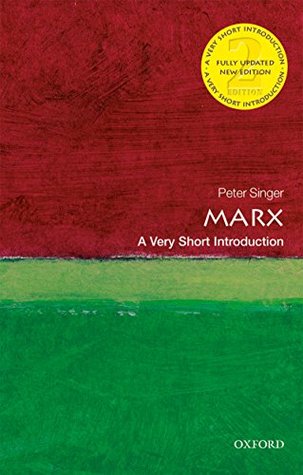More on this book
Community
Kindle Notes & Highlights
by
Peter Singer
Read between
March 27 - March 31, 2018
‘if a philosopher really has compromised, it is the job of his followers to use the inner core of his thought to illuminate his own superficial expressions of it’
‘Religion is the sigh of the oppressed creature, the heart of a heartless world, and the soul of soulless conditions. It is the opium of the people.’
His reasons for placing importance on the proletariat are philosophical rather than historical, economic, or scientific.
‘We can see how economics rigidifies the alienated form of social intercourse, as the essential, original form that corresponds to man’s nature’
The materialist conception of history was not conceived as a modern scientific account of how economic changes lead to changes in other areas of society. It was conceived as an explanation of history which points to the real forces operating in it, and the goal to which these forces are heading.
as the work of a critic of capitalist society. Marx wanted to expose the deficiencies of classical economics in order to expose the deficiencies of capitalism. He wanted to show why the enormous increase in productivity and wealth brought about by the industrial revolution had made the great majority of human beings worse off than before. He wanted to reveal how the old relationships of master and slave, lord and serf, survived under the cloak of freedom of contract. His answer to these questions was the doctrine of surplus value. As an economic doctrine it does not stand up to scientific
...more
If Marx has any claim to a place alongside Hobbes, Locke, Rousseau, and Hegel as a major political philosopher, it rests on his critique of the liberal conception of freedom.
Important elements of Marx’s view of human nature are now so widely accepted that a return to a pre-Marxist conception of human nature is unthinkable. Though Marx’s own theory is not scientific, it laid the foundations for a new social science that would explore the relations between such apparently unconnected areas of life as the tools people use to produce food and their political and religious beliefs.
Marx’s mistake about human nature helps to explain the failures of several forms of communism that have claimed to be Marxist.
the distance between the communist society Marx envisaged and the form taken by ‘communism’ in the 20th century may in the end be traceable to his mistaken conception of the plasticity of human nature.


